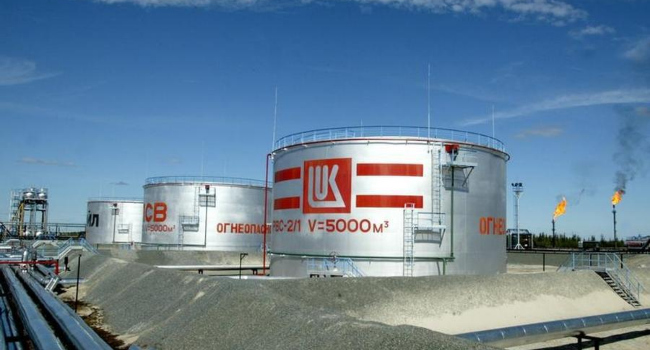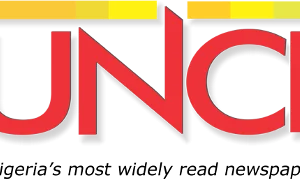
The Trump administration on Friday gave clearance to potential buyers to talk to Russia’s Lukoil about buying its foreign assets in Nigeria and other countries.
The move will allow business dealings with Lukoil’s Burgas refinery after Bulgaria moved to seize the plant, according to a Reuters report.
Lukoil has three refineries in Europe, as well as stakes in oilfields in Kazakhstan, Uzbekistan, Iraq, Mexico, Ghana, Egypt, and Nigeria. It also has hundreds of retail fuel stations around the world, including in the United States.
Channels Television on Monday reported how the firm’s foreign assets face sanctions as a result of sanctions by the United States.
The U.S. last month imposed sanctions on Russia’s two biggest oil companies, Lukoil, and Rosneft, for their help in financing Russia’s nearly four-year war in Ukraine. Lukoil has faced growing disruptions to its foreign assets, which account for about 0.5% of global oil production, since the sanctions were imposed.
The Treasury Department on Friday issued a set of licenses, one of which authorized companies to talk to Lukoil through December 13 about buying its foreign assets.
The U.S. will only authorise a transaction involving the sale of those assets if it completely severs ties with Lukoil and if the funds from that sale are placed into an escrow account that Lukoil cannot access as long as it is sanctioned.
The Treasury Department also allowed transactions until April 29, 2026, involving Lukoil entities in Bulgaria.
READ ALSO: Lukoil Nigerian Assets, Other Countries Facing Disruptions From US Sanctions
The Bulgarian Energy Ministry said in a statement that the U.S. move “is a direct result of the intensive actions, negotiations, and diplomatic talks we have been conducting since day one to ensure stability, predictability, and peace of mind for Bulgarian citizens and businesses.”
Britain’s Office of Financial Sanctions Implementation has also granted licenses for Lukoil Bulgaria EOOD and Lukoil Neftochim Burgas AD. The latter manages the country’s only oil refinery at Burgas.
“These authorisations support the energy security of our partners and allies without benefiting the Russian government,” Reuters quoted a Treasury spokesperson.
Treasury also issued a license to allow transactions with the Caspian Pipeline Consortium and Tengizchevroil projects, even if they involve the sanctioned oil companies.
CPC is a pipeline bringing more than 1.6 million barrels per day of crude, or 1.5% of global oil, from Kazakhstan’s oil fields developed by U.S. and EU majors Chevron, Exxon Mobil, Eni, Shell, TotalEnergies, and Lukoil. It crosses Russian territory and can be fully shut down by Moscow if it decides it wants to retaliate against Western sanctions.
The lawsuit, brought by over 600,000 Brazilians, was previously valued at up to $48 billion.
Lukoil’s international assets are estimated to be worth about $22 billion, based on 2024 filings.
The company’s global footprint spans upstream oil and gas projects, refining, and fuel retail networks across Africa, Europe, Central Asia, the Middle East, and the Americas.
It produces half a million barrels of oil per day outside of Russia, or 0.5% of global oil output, in countries such as Iraq, Kazakhstan, and Azerbaijan.
Below are details about its international assets:
UPSTREAM OPERATIONS
MIDDLE EAST
Lukoil operates Iraq’s 480,000 barrel-per-day West Qurna 2 oilfield, one of the world’s largest, and holds a 75% stake.
Lukoil has declared force majeure at the field, after Iraq halted all cash and crude payments to the company, sources told Reuters.
In Egypt, Lukoil holds a 50% stake in the West Esh El Mallaha (WEEM) and WEEM Extension oilfields alongside Egypt’s Tharwa Petroleum. It also holds a 24% stake in the Meleiha concession, while Italy’s Eni holds the remainder.
In the UAE, it holds 10% of the Ghasha offshore concession, a large gas and condensate project, operated by ADNOC.
CENTRAL ASIA
Lukoil holds stakes in major Kazakh oil and gas projects, including 13.5% in Karachaganak and 5% in Tengiz. It also has a 12.5% stake in the Caspian Pipeline Consortium (CPC), which exports oil from Tengiz to the Black Sea.
The company also owns nearly 20% of the BP-operated Shah Deniz gas field in the Azerbaijani sector of the Caspian Sea.
Lukoil also operates the South-West Gissar gas field in Uzbekistan and holds a 90% stake in the Kandym fields development near the country’s border with Turkmenistan.
AFRICA AND LATIN AMERICA
Lukoil has upstream interests in several offshore exploration blocks in West Africa, including in Cameroon, Nigeria, and Ghana, as well as a 25% interest in Congo’s LNG-producing Marine XII block, which is operated by Eni.
That’s following sanctions over Ukraine imposed last week by the United States.
In Mexico, Lukoil also has stakes in several offshore blocks where it partners with Italy’s Eni. It also has a 50% stake in the Amatitlan onshore block, operated by Petrolera de Amatitlan SAPI de CV. REFINING ASSETS
BULGARIA
Lukoil owns the 190,000-barrel-per-day Neftohim Burgas refinery, the largest in the Balkans. In response to the sanctions, Bulgaria’s parliament recently passed legislation allowing the government to take control of the refinery, citing national security concerns. It also stepped up security measures at the site ahead of the potential takeover.
ROMANIA
In Romania, Lukoil fully owns the country’s 48,600 barrel-per-day Petrotel refinery. The Romanian government has said it will scrutinise any proposed asset sales to ensure compliance with EU regulations and to safeguard energy security.
NETHERLANDS
Lukoil’s trading arm Litasco holds a 45% stake in the Zeeland refinery, a 180,000 barrel-per-day facility operated as a joint venture with France’s TotalEnergies.
FUEL RETAIL BUSINESS
FINLAND
Lukoil fully owns Teboil, one of Finland’s largest fuel retailers with approximately 430 stations. Some Teboil stations have begun running out of fuel due to halted deliveries linked to the sanctions, daily Helsingin Sanomat reported.
MOLDOVA
Lukoil owns the only plane refuelling facility and the fuel storage site at the country’s only international airport in Chisinau. Moldova has requested a temporary exemption from Washington for Lukoil to continue operating in the country.
UNITED STATES
There are also about 200 Lukoil-branded petrol stations in New Jersey, Pennsylvania, and New York. The Russian company entered the U.S. market in the early 2000s by acquiring local stations, including Mobil-branded stations from ConocoPhillips.
OTHERS
Lukoil has a significant retail presence in several countries. It is one of the top players in Moldova and Bulgaria, operates around 600 petrol stations in Turkey, where it also has significant oil storage, and more than 300 petrol stations in Romania.





